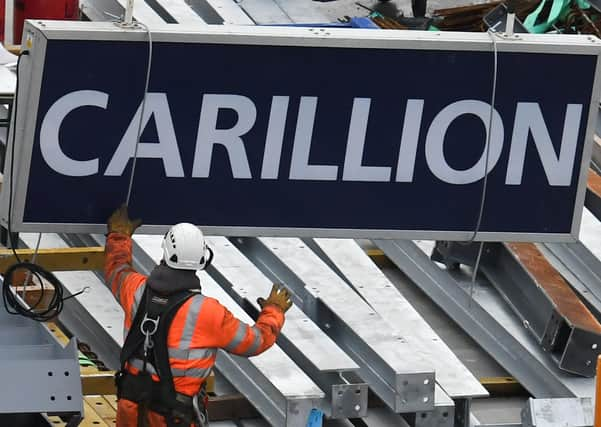Folly of PFI contracts over Covid-19 must not escape scrutiny – Kieran Neild-Ali


In principle, and in many cases, in practice, outsourcing to the private sector is a good thing. The nature of profit incentives dictates that businesses will aim to complete government contracts on time, on budget, and to a high standard.
And, in theory, this symbiosis of public and private sector interests works well. However, readers won’t have to cast their minds too far back to remember the catastrophic collapse of Carillion to realise this isn’t always the reality.
Advertisement
Hide AdAdvertisement
Hide AdUnder the Private Finance Initiative (PFI), pioneered by John Major and then Tony Blair, the private sector invests in public infrastructure projects offering to finance the cost, build and maintain the project.


The deal is that the Government pays back the value of the contract over a fixed period of time, plus an annual service charge. Carillion was a huge cog in the PFI machine, and was the second largest UK construction firm before its demise in 2018. And it became emblematic of the problems with the system.
PFI contributed to the collapse of Carillion because government contracts were low margin and high risk. On top of this, PFI deals required large upfront borrowing to offer the government a deliverable investment package.
Despite it being common knowledge in the City of London that the company was struggling financially, the Government continued to accept bids from Carillion, off-loading huge investment projects they could not deliver.
Advertisement
Hide AdAdvertisement
Hide AdThis is only one part of the saga. The real travesty lies in what happened after the collapse. When PFI deals break down, the Government – or more specifically, taxpayers – are left to foot the bill for the projects.


In Carillion’s case, £62m worth of contracts were incomplete and the state was forced to step in. If the Government had read the warning signs, public projects would not have been awarded to Carillion.
Since the scandal, the Government has endeavoured to reform the public tender process. However, with the state playing a more noticeable role in our lives, outsourcing big-money contracts to the private sector is likely to remain a feature of UK public policy.
According to reports, the Government has dished out contracts worth £1.7bn to private companies during lockdown without adhering to its own competitive tender guidelines.
Advertisement
Hide AdAdvertisement
Hide AdThey provide for everything from medical equipment to advising civil servants on the pandemic. We all admire quick, decisive action in times of hardship and recognise that bureaucratic procedure would only frustrate the general public. But value for money matters and Ministers now stand accused of wasting an eye-watering sum of money.


The NHS awarded private firm Serco a £108m 13-week deal to track and trace people who tested positive for coronavirus. Figures uncovered by the Labour Party show that after nine weeks only 83,000 people have been contacted, at a cost to the taxpayer of £902.50 for each person contacted.
The Government reportedly spent £150m on unusable face masks. The masks were apparently bought without a tender process from a London-based investment company with no experience of public contracts.
And £16m was spent on testing kits produced by a Chinese firm – lo and behold, reports suggest they did not work. In just three examples, £224m has potentially been wasted on duff equipment and a test and trace system which failed to deliver value for money.
Advertisement
Hide AdAdvertisement
Hide AdFailures like this are symptomatic of the wider issues with public contracts. As with Carillion, the rush to deliver on promises can see politicians tender to poor choice providers and, in the end, be left paying through the nose for sub-standard services. For taxpayers, it doesn’t get any worse than this double whammy of high costs and poor outcomes.
This is why new Government contracts must not escape scrutiny. Usually, accountability only comes after the fact, with parliamentary enquiries and committees convening to apportion blame in the aftermath of failures, like with the Capita army recruitment fiasco.
This is not good enough. Contracts must be awarded with a clear chain of accountability for decision makers. Ministers must not rush into bad deals for the sake of a quick headline. Bureaucrats should think twice about giving inexperienced companies the right to make PPE for NHS staff, or companies on death’s door the right to build schools and hospitals.
This secret arm of the state must be held accountable for the waste of taxpayers’ money, starting right now.
Kieran Neild-Ali is grassroots assistant at the TaxPayers’ Alliance.
How you can support The Yorkshire Post and our journalism - please read this letter from Editor James Mitchinson
Comment Guidelines
National World encourages reader discussion on our stories. User feedback, insights and back-and-forth exchanges add a rich layer of context to reporting. Please review our Community Guidelines before commenting.